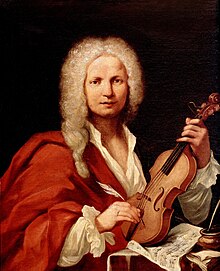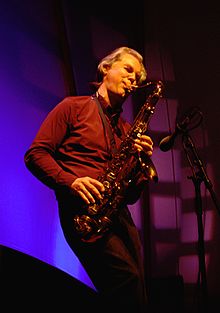Friday, March 4, 2016
You can listen to the Classical Music Almanac Podcast Daily here.
Birthdays

Antonio Vivaldi
In 1678 Antonio Vivaldi was born in Venice. He was an Italian Baroque composer, virtuoso violinist, teacher and cleric. Born in Venice, he is recognized as one of the greatest Baroque composers, and his influence during his lifetime was widespread across Europe. He is known mainly for composing many instrumental concertos, for the violin and a variety of other instruments, as well as sacred choral works and more than forty operas. His best-known work is a series of violin concertos known as The Four Seasons. Many of his compositions were written for the female music ensemble of the Ospedale della Pietà, a home for abandoned children where Vivaldi (who had been ordained as a Catholic priest) was employed from 1703 to 1715 and from 1723 to 1740. Vivaldi also had some success with expensive stagings of his operas in Venice, Mantua and Vienna. After meeting the Emperor Charles VI, Vivaldi moved to Vienna, hoping for preferment. However, the Emperor died soon after Vivaldi’s arrival, and Vivaldi himself died less than a year later in poverty. 1

Victor Salvi
In 1920 Victor Salvi was born in Chicago. He was an American-born harpist, harp maker, and entrepreneur. Salvi, who has been called “harpmaker of the world”, was of Italian descent. Born in Chicago, Illinois, he immigrated back to Italy several years into his professional career. Credited for transforming the harp industry, he began his career as a musician, and turned to building world-renowned harps. As a musician, Victor Salvi played under some of the most renowned conductors of the twentieth century, including Dimitri Mitropoulos, Arturo Toscanini, and Bruno Walter. As a businessman, Salvi merged markets between his Europe-based Salvi Harps and the United States company Lyon & Healy, which he acquired in 1987. As an engineer, Salvi is responsible for the largest modern progressions of the instrument. Philanthropically, he has sponsored multiple competitions, concerts, as well as commissioning harp compositions. Salvi has expanded the harp’s notoriety worldwide, raising the instrument’s profile, and heightening its importance musically. 2

Ralph Kirshbaum
Happy birthday Ralph Kirshbaum! He was born in Denton, Texas, and grew up in Tyler. His father, Joseph Kirshbaum, was a professional violinist, music educator, and conductor who founded the East Texas Symphony Orchestra; his mother, Gertrude Morris Kirshbaum, was a harpist. Ralph started cello lessons with his father at age six; he continued with Dallas teachers Roberta Guastafeste at 11 and Lev Aronson at 14. He won numerous awards as a student and appeared as a soloist with the Dallas Symphony at age 15. Kirshbaum continued his education at the Yale University School of Music, where he studied with Aldo Parisot. He graduated Yale magna cum laude and Phi Beta Kappa with highest departmental honors. In 1968 he earned a Fulbright fellowship, but Selective Service registration issues prevented him from using it. Kirshbaum attracted international attention when he won prizes in the First International Cassadó Competition in Florence, Italy, in 1969, and subsequently in the Tchaikovsky Competition in Moscow in 1970. He made hisLondon debut recital at Wigmore Hall in 1970, his professional orchestral debut (performing Tchaikovsky’s Rococo Variations with the New Philharmonia Orchestra of London) in 1972, and his New York debut at the Metropolitan Museum of Art in 1976. In his long career, Kirshbaum has soloed with most of the world’s major orchestras, including the BBC Symphony, the Berlin Radio Symphony, the Boston Symphony, the Chicago Symphony, the Cleveland Orchestra, the Dallas Symphony, the Hallé Orchestra, the Houston Symphony, the London Symphony, the Los Angeles Philharmonic, the New Philharmonia Orchestra, the Philharmonia Orchestra, the Pittsburgh Symphony, the San Francisco Symphony, and many others. As a chamber musician he has collaborated with Yefim Bronfman, Peter Frankl, the Juilliard String Quartet, Garrick Ohlsson, György Pauk, Itzhak Perlman, Gil Shaham, the Tokyo String Quartet,Pinchas Zukerman, and others; in particular, his longtime trio collaboration with Frankl and Pauk has generated a large number of concerts and recordings. The BBC commissioned Fourteen Little Pictures by James MacMillan to mark their 25th anniversary in 1997. He has participated in numerous major music festivals worldwide and is the founder and Artistic Director of the Manchester International Cello Festival, which was held at the Royal Northern College of Music, where he currently teaches. In the fall of 2008, he assumed the “Gregor Piatigorsky Endowed Chair in Violoncello” at the University of Southern California’s Thornton School of Music in Los Angeles. He becomes only the fourth person to hold the position after Piatigorsky himself; the other three are Lynn Harrell (1986–1993), Ronald Leonard (1993–2003), and Eleonore Schoenfeld (2004–2007). Kirshbaum has recorded extensively; selections from his discography are shown below. His cello was crafted in 1729 by the Venetian maker Domenico Montagnana. 3
Happy birthday Jan Garbarek! Garbarek’s sound is one of the hallmarks of the ECM Records label, which has released virtually all of his recordings. His style incorporates a sharp-edged tone, long, keening, sustained notes, and generous use of silence. He began his recording career in the late 1960s, notably featuring on recordings by the American jazz composer George Russell (such as Electronic Sonata for Souls Loved by Nature). If he had initially appeared as a devotee of Albert Ayler and Peter Brötzmann, by 1973 he had turned his back on the harsh dissonances of avant-garde jazz, retaining only his tone from his previous approach. Garbarek gained wider recognition through his work with pianist Keith Jarrett’s European Quartet which released the albums Belonging (1974), My Song (1977) and the live recordings Personal Mountains (1979), and Nude Ants (1979).[3] He was also a featured soloist on Jarrett’s orchestral works Luminessence (1974) and Arbour Zena (1975). As a composer, Garbarek tends to draw heavily from Scandinavian folk melodies, a legacy of his Ayler influence. He is also a pioneer of ambient jazz composition, most notably on his 1976 album Dis a collaboration with guitarist Ralph Towner that featured the distinctive sound of a wind harp on several tracks. This textural approach, which rejects traditional notions of thematic improvisation (best exemplified by Sonny Rollins) in favour of a style described by critics Richard Cook and Brian Morton as “sculptural in its impact”, has been critically divisive. Garbarek’s more meandering recordings are often labeled as new-age music, a style generally scorned by more orthodox jazz musicians and listeners, or spiritual ancestors thereof. Other experiments have included setting a collection of poems of Olav H. Hauge to music, with a single saxophone complementing a full mixed choir; this has led to notable performances with Grex Vocalis, but not yet to recordings. In the 1980s, Garbarek’s music began to incorporate synthesizers and elements of world music. He has collaborated with Indian and Pakistani musicians such as Trilok Gurtu, Zakir Hussain, Hariprasad Chaurasia, and Ustad Fateh Ali Khan. Garbarek is credited for composing original music for the 2000 film Kippur. In 1994, during heightened popularity of Gregorian chant, his album Officium, a collaboration with early music vocal performers the Hilliard Ensemble, became one of ECM’s biggest-selling albums of all time, reaching the pop charts in several European countries and was followed by a sequel, Mnemosyne, in 1999. Officium Novum, another sequel album, was released in September 2010. In 2005, his album In Praise of Dreams was nominated for a Grammy. Garbarek’s first live album Dresden was released in 2009. 4
Premieres
In 1877 Tchaikovsky’s Swan Lake was premiered at the Bolshoi Theater in Moscow.
In 1916 Claude Debussy’s Cello Sonata premiered in London.
In 1921 Daniel Gregory Mason’s Prelude and Fugue for piano and orchestra was premiered in Chicago.
In 1995 Christopher Rouse conducted the Houston Symphony Orchestra in the premiere of his Symphony No. 2.
On This Day in Classical Music
In 1791 Mozart made his final public performance in Vienna with the premiere of his Piano Concerto No. 27.
In 1801 The U.S. Marine Band performed for Thomas Jefferson’s inaugural. An avid music lover and amateur violinist, Jefferson gave the Marine Band the title “The President’s Own.” Since that time, the band has played for every presidential inaugural.
In 1809 The U.S. Marine Band performed for James Madison’s Presidential inaugural ball, the first ever held. The President, First Lady Dolly Madison, and their guests were serenaded by popular songs and dances of the period.
In 1895 Gustav Mahler conducted the Berlin Philharmonic in the first and third movements of his Symphony No. 2 – known as Resurrection. He would conduct the premiere of the complete symphony 9 months later
Recommended Listening
Antonio Vivaldi’s The Four Seasons performed by The English Chamber Orchestra.
- Wikipedia contributors, “Antonio Vivaldi,” Wikipedia, The Free Encyclopedia, https://en.wikipedia.org/w/index.php?title=Antonio_Vivaldi&oldid=706643651 (accessed March 1, 2016).
- Wikipedia contributors, “Victor Salvi,” Wikipedia, The Free Encyclopedia, https://en.wikipedia.org/w/index.php?title=Victor_Salvi&oldid=696087209 (accessed March 1, 2016).
- Wikipedia contributors, “Ralph Kirshbaum,” Wikipedia, The Free Encyclopedia, https://en.wikipedia.org/w/index.php?title=Ralph_Kirshbaum&oldid=667715384 (accessed March 1, 2016).
- Wikipedia contributors, “Jan Garbarek,” Wikipedia, The Free Encyclopedia, https://en.wikipedia.org/w/index.php?title=Jan_Garbarek&oldid=705161102 (accessed March 1, 2016).

